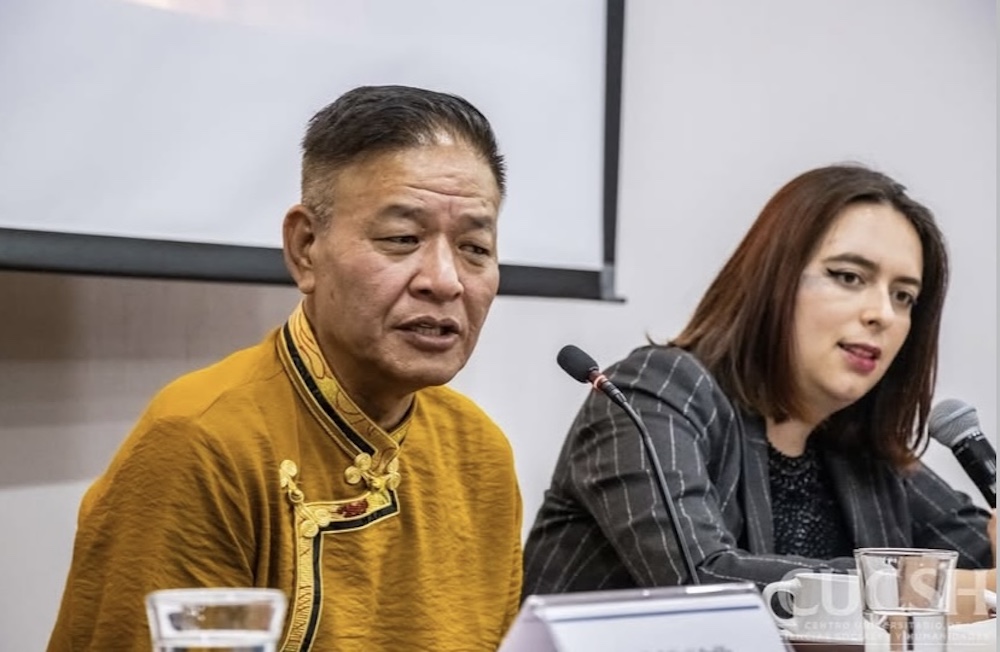Tsering Dhundup
DHARAMSHALA, April 3: The Dalai Lama Centre for Indian and Tibetan Ancient Wisdom convened its first All-India conference on ancient Indian and Tibetan knowledge systems and their enduring relevance on Thursday near the Mahabodhi Temple in Bodhgaya, Bihar.
The two-day event, hosted at the Buddha Heritage and Resort, has brought together approximately 40 scholars from diverse backgrounds to explore the intersection of ancient wisdom traditions and modern challenges.
Dr Thiyagarajan S.M., District Magistrate of Gaya, served as the chief guest at the inaugural ceremony, which was attended by several distinguished figures, including former Kalon Tripa Samdong Rinpoche, former cabinet minister Tenpa Tsering, and the Centre’s Director, Geshe Tashi Tsering, who previously served as the abbot of Sera Mey Monastery.
In his message to the conference, the Dalai Lama expressed pleasure at the inaugural event taking place. He highlighted how Buddhist science, philosophy, and religion from India have shaped Tibetan thinking over generations, noting that Tibetans have been custodians of this ancient Indian wisdom for over 1,300 years.
His Holiness the Dalai Lama further stated the importance of integrating ancient wisdom with modern education and science: “The Centre’s plan is not to merely draw attention to the ancient Indian wisdom but to see how it can be merged with modern science and technology, through which we see much potential for contributing to a safer, happier, more harmonious world.”
The conference agenda covers a wide range of topics, including the relevance of ancient Indian and Tibetan wisdom in contemporary society, diverse philosophical perspectives on the nature of reality, consciousness studies, logic and epistemology, and the application of ancient psychological insights to modern challenges.
Former Kalon Tripa Samdhong Rinpoche addressed the gathering with three critical questions regarding the preservation of Indo-Tibetan ancient wisdom, highlighting its potential value in addressing today’s environmental, social, political, and economic issues.
The Cultural Division of the Indian Ministry of External Affairs also recognised the Centre’s significance in preserving and promoting the Nalanda tradition as a science of mind while enhancing research methodologies and providing educational opportunities to monks, nuns, and laypersons.
Originally named the Nalanda Centre, the institution had its foundation stone laid by the Dalai Lama on January 3, 2023. It aims to serve as a transformative platform for adapting Tibetan and Indian philosophical traditions to contemporary needs through scholarly research, dialogue, and collaboration, with particular emphasis on applying ancient wisdom to foster compassion, ethics, and sustainability in the modern world.










